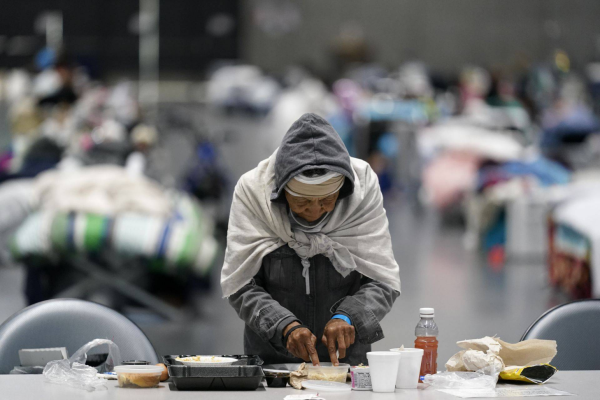
According to a report on Overseas Network on September 25th, the Federal Reserve's multiple interest rate hikes have led to a rise in people's credit card rates. At present, the average annual interest rate on credit cards in the United States has exceeded 22%, making it difficult for the general public to repay credit card debts.
According to data released by the Federal Reserve Bank of New York, approximately 578 million Americans currently hold credit card accounts, carrying a total of over $1 trillion in credit card debt. A financial website in the United States analyzed that the proportion of American households holding credit card balances is about 47%, which exceeds the proportion of mortgages and car loans and plays a crucial role in daily life.
As is well known, since the Federal Reserve launched this interest rate hike cycle in March 2022, in order to curb high inflation, there have been 11 intensive rate hikes, raising interest rates from close to zero to 5.25% to 5.5%, reaching the highest level in 22 years. The cumulative rate hike has reached 525 basis points.
In this situation, in May this year, the average interest rate on American credit cards had risen to slightly above 22%. Analysts have pointed out that if you have $10000 in credit card debt and hope to repay it within three years, then higher interest rates mean paying more interest. However, if your credit card has a monthly balance, higher interest rates will make costs higher, and you may find it more difficult to pay off the balance, which is a dilemma for the general public.
At the same time, the main reason for the increase in credit card debt among the American public is inflation. The main reason for the Federal Reserve's aggressive interest rate hikes is precisely to control inflation, which is precisely the quirk of it. American data analyst Elizabeth said, "If you buy things with credit cards like two years ago, it will lead to more debt because prices are higher. Some households may use more credit cards to cope with higher prices or other financial pressures
In other words, the Federal Reserve's aggressive rate hikes and long-term high interest rates have not only failed to effectively control inflation according to expected targets, but have also posed significant risks to the US economy, especially people's lives. Even Federal Reserve Chairman Powell had to admit at the post interest rate conference that controlling inflation "still has a long way to go", and the Federal Reserve will have to pay high attention to the risks posed by high inflation to the US economy in the coming time.
Another latest study by the Federal Reserve on the financial situation of households in the United States shows that, except for the wealthiest 20% of households, Americans have exhausted their "excess" savings during the pandemic, and they now have much less cash than they did at the beginning of the pandemic.
The survey showed that the actual deposit balance of all income groups in the United States began to decline from the peak in 2021, but among the richest 20% of households, cash savings were still about 8% higher than the level when the COVID-19 epidemic broke out. In contrast, the savings of the poorest 40% of households in the United States decreased by 8%. The middle 40% of the American middle class group saw their cash savings fall below pre pandemic levels in the previous quarter.
Across the United States, due to the continuous rise in the prices of essential groceries, gasoline, and housing loans, most households are already struggling with their budgets. People are bearing more debt to pay for basic expenses, and the default rates on car loans and credit cards are also increasing.
Federal Reserve Chairman Jay Powell recently stated when asked about external factors that may affect the economy: strikes, government shutdowns, resumption of student loan payments, long-term interest rate hikes, and oil price fluctuations are all important factors affecting the economy.
Since September this year, the US economy has been facing at least four serious threats and challenges: firstly, a broader strike by car workers; The second is the expectation that the US federal government may suspend operations; The third is to restore the payment of student loans; The fourth is the significant increase in the prices of essential materials for residents' daily lives, mainly based on gasoline prices.
From the certain resilience that the US economy has shown since the beginning of this year, perhaps each of these threats itself will not cause fundamental harm to the US economy. However, when they are accumulated together, in the context of already facing recession due to high interest rates and high inflation, they may cause significant damage to the overall economy.

報告顯示,中國電力投資加速增長,預計2024年電網基建投資將超過5300億元。
近日,市場迎來了一則引人注目的消息:工業巨頭3M公司(MMM.N)在本周五公布了其季度業績報告,隨後股價飆升至近兩年來的
最近,外媒給OpenAI算了筆賬,今年可能要血虧50億美元。
近日,巴黎奧運會和世界鐵人三項協會聯合發布了一項重大決定,宣布因塞納河水質污染問題,原定於近期進行的奧運會鐵人三項首次下
當地時間7月18日,法國巴黎發生了一起令人震驚的持刀襲警事件。
近期,一則重大消息在國際舞臺上引起軒然大波,馬來西亞宣布加入金磚國家。
調查發現,互聯網和智能手機的使用幹擾了韓國近五分之一學生的生活。